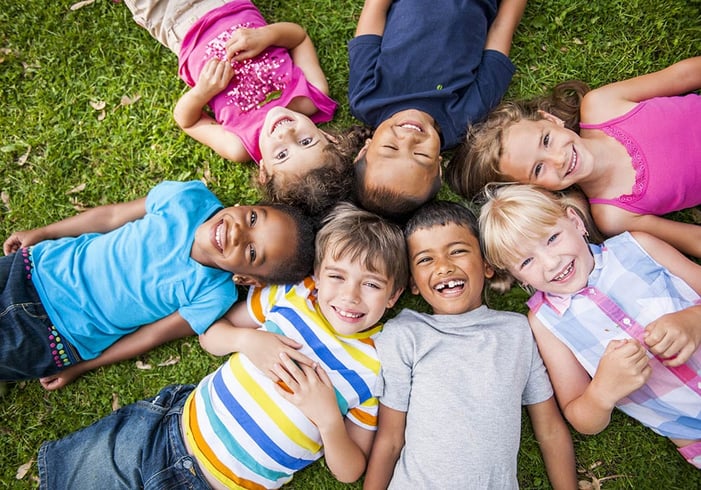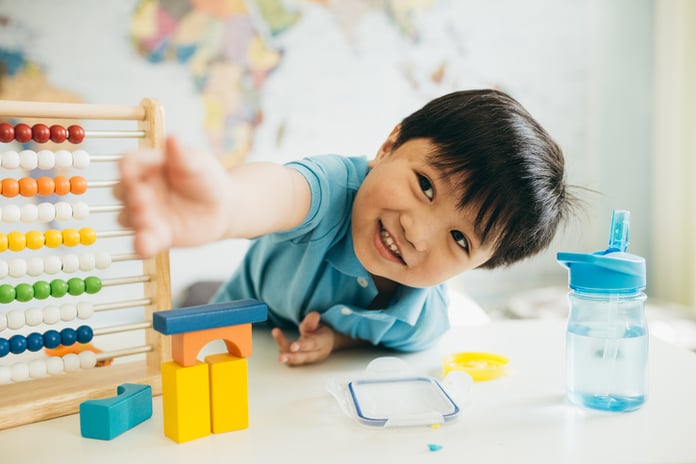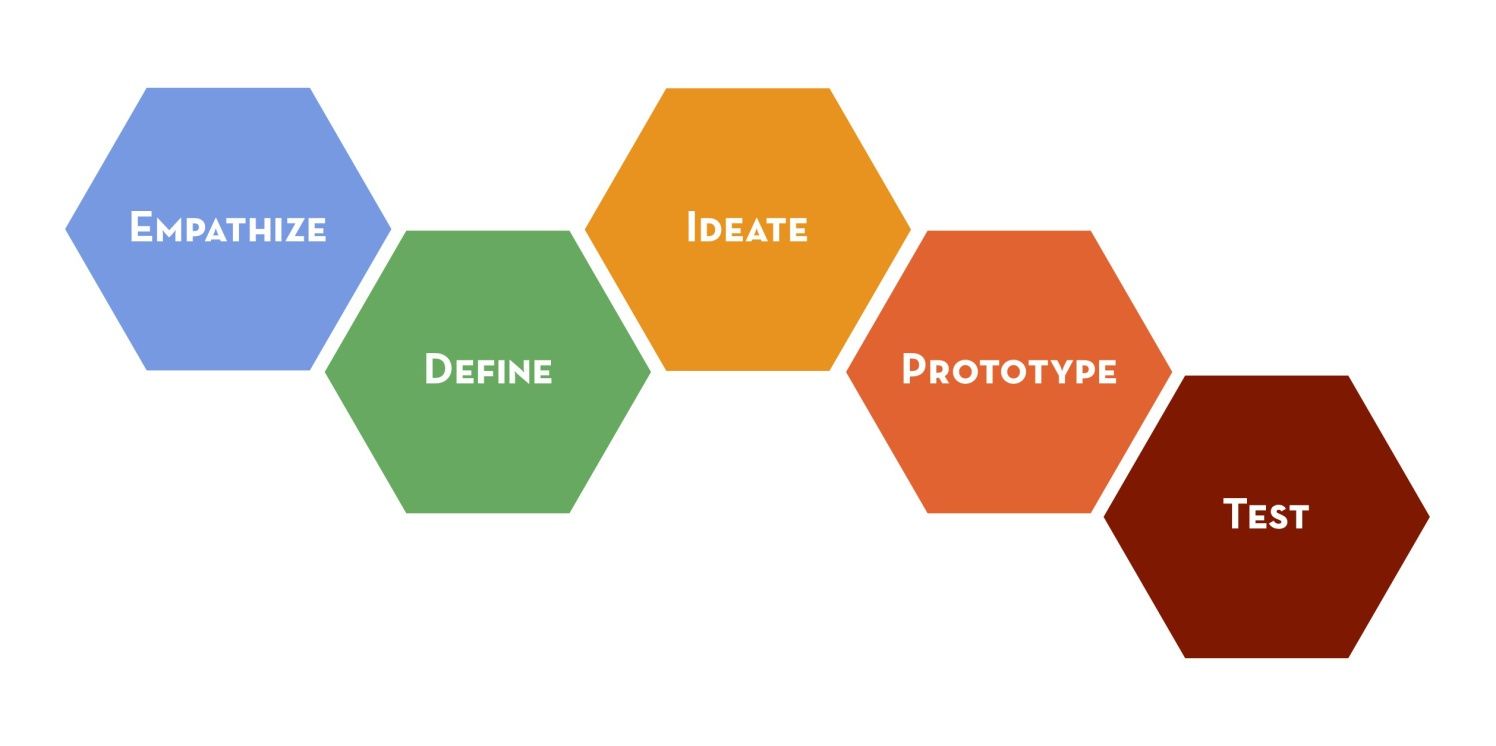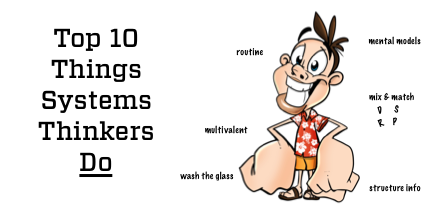Teach Your Child to Think
 Laura Cabrera, PhD
·
4 minute read
Laura Cabrera, PhD
·
4 minute read
There are moments in life when we instinctively know that our life is changing and that a corollary transformation of ourselves is underway. I am sure that every parent remembers with great clarity the moment that the totality of becoming a parent hit them. Never is there such a crystallization of absolute joy and heart stopping fear. The enormity of the responsibility of parenthood weighs on us before a child arrives in our home. Yet, we embrace the joy, face that fear, and take the responsibility head on to do what our instincts tell us to do as biological beings raising our young.
When a baby arrives, parents pay great attention to the baby’s physical traits, growth and development. We do silly things like videotape the first time a baby raises its arm, wiggles a particular way or points a finger. All of a baby’s first check ups focus on the physical parts of a newborn, with almost no attention to anything else. Is the baby eating, sleeping, etc.? There comes a point, however, when we begin to note that the child seems to be connecting what he or she observes to some kind of behavior they exhibit (a noise they make, a facial expression, a movement, etc.), and then we realize that there is a person – a conscience being inside that adorable little package in which our child arrived. This connection between a child’s sensory awareness and other reactions to the world is more fascinating to watch than any other form of entertainment. What we are witnessing is the emergence of thought.
 This exhibition of cognitive ability is just one of many milestones that pediatricians begin to track each time we have a predetermined check up for our child. These milestones are designed to chart both your baby’s physical growth and developmental abilities. While these milestones are helpful to assure us that our child’s progress is “normal,” it also sets us up to accept that there are norms that can (or should) be applied to all children. The problem with this approach is that each and every child is a unique being, with differing abilities, strengths and gifts to offer the world regardless of where they fit on the “normal” charts.
This exhibition of cognitive ability is just one of many milestones that pediatricians begin to track each time we have a predetermined check up for our child. These milestones are designed to chart both your baby’s physical growth and developmental abilities. While these milestones are helpful to assure us that our child’s progress is “normal,” it also sets us up to accept that there are norms that can (or should) be applied to all children. The problem with this approach is that each and every child is a unique being, with differing abilities, strengths and gifts to offer the world regardless of where they fit on the “normal” charts.
Once parents believe in these standardized assessments of even the youngest child, we begin to label our children in normative terms. We run the danger of not recognizing each child’s unique identity because we are seeing our child through other people’s eyes. This has another impact, as your child recognizes and accepts these standard assessments of their progress (or lack of progress), they too may begin to define themselves in relation to these norms, single-handedly changing their view of themselves and how they fit into the world around them. It is our job as parents to provide an additional framework which empowers our children to recognize their uniqueness, as well as the importance and power that each of us brings to the human experience.
Parenting consists of many critical decision points; the choices we make for our kids are necessary to help them navigate through their daily life, whether it is school, friendships, bullies, etc. We struggle at times to make choices, second guess ourselves after we have made a choice, and constantly seek help from other parents or experts in parenting as the years go by and the choices are harder. How we assess our ability to parent frequently correlates with how well our children are faring as they enter into the world outside of our own home. Once children know how they think, their potential is limitless.
 The skill that parents believe their children will need obviously varies depending on who you ask. However, most parents would list ideas that relate to intelligence, resilience, and/or self-reliance, as key to their child’s ability to manage their daily life. As we know, intelligence has many meanings – and there are multiple types of intelligence. There also exist many different types of thinking that have been written about that allegedly form the basis for intelligence. Interestingly enough, what is lacking in the current literature on this topic is a focus on thinking in both a broad and a specific sense. Broadly, we read very little about thinking – in fact, it is usually qualified by another term such as “analytical,” or “scientific” or “creative.” The act of formulating thoughts is often linked to a substantive framework, and thus, not seen as a general skill in and of itself. Specifically, the fundamental elements that comprise thought are an area open to great exploration and discovery. Identifying and understanding the primary components of thought is the key to understanding every type of thinking, and more importantly, gives us the ability to teach a powerful tool to our children – how to think. Once children can think, their potential is limitless.
The skill that parents believe their children will need obviously varies depending on who you ask. However, most parents would list ideas that relate to intelligence, resilience, and/or self-reliance, as key to their child’s ability to manage their daily life. As we know, intelligence has many meanings – and there are multiple types of intelligence. There also exist many different types of thinking that have been written about that allegedly form the basis for intelligence. Interestingly enough, what is lacking in the current literature on this topic is a focus on thinking in both a broad and a specific sense. Broadly, we read very little about thinking – in fact, it is usually qualified by another term such as “analytical,” or “scientific” or “creative.” The act of formulating thoughts is often linked to a substantive framework, and thus, not seen as a general skill in and of itself. Specifically, the fundamental elements that comprise thought are an area open to great exploration and discovery. Identifying and understanding the primary components of thought is the key to understanding every type of thinking, and more importantly, gives us the ability to teach a powerful tool to our children – how to think. Once children can think, their potential is limitless.
 Every parent hopes their child will fully realize their potential and be successful. A parent’s definition of “success” will also vary, some would define it in terms of achievement or status, others in emotional well being or happiness, and yet others may define success in terms of material wealth. And, of course, many hope for a combination of any or all of these things.
Every parent hopes their child will fully realize their potential and be successful. A parent’s definition of “success” will also vary, some would define it in terms of achievement or status, others in emotional well being or happiness, and yet others may define success in terms of material wealth. And, of course, many hope for a combination of any or all of these things.
When a child first arrives in your life, your only focus is keeping that baby alive, ensuring his/her physical survival. Over time, as each child’s natural talents and potential unfold before us, parents formulate greater expectations and hopes for their children. The focus on survival shifts to a fierce commitment to helping our children thrive.
 What does it mean to thrive?
What does it mean to thrive?
The most commonly understood definition of thrive is to “make steady progress: prosper; grow vigorously; or flourish.” For parents, thriving encapsulates many more ideas:
- We want our child to possess a true sense of belonging no matter where they are.
- We want every child to have a clear definition of self; and embrace their connectedness to others.
- We want our child to have the capacity for love, compassion and charity.
- We want any suffering they endure to lead to perseverance and that perseverance to strengthen their character.
- We want the obstacles they face to become challenges they overcome.
- We hope that the tears they shed are few, but those that are shed help them grow.
- We want our child to remain ever curious, and have an unending love of learning as the years go by.
- We want their feet to feel grounded in reality but their spirit free.
- We hope their dreams are high enough to strive for but close enough to reach.
Our child should know that the gifts they offer are unique and feel limitless in their abilities.
 The transformation to parenthood can be different for mothers than it is for fathers, vary by cultural norms and many other factors, yet there are some key tenets of parenthood that we all share. We love our children. We want them to be happy. We want them to be successful. We want them to thrive.
The transformation to parenthood can be different for mothers than it is for fathers, vary by cultural norms and many other factors, yet there are some key tenets of parenthood that we all share. We love our children. We want them to be happy. We want them to be successful. We want them to thrive.
How do we move beyond helping our kids survive and enable them to thrive?
We contend that the key to thriving is thinking. Life is full of choices that determine the path that we follow, and ultimately where we end up. If we know we want our children to land in a place where they will thrive – we do not need to construct a road that leads directly to that place; rather, we need to give them the tools to find their way to it regardless of the path they chose to take.
.png?width=150&height=150&name=CRL%20GOAT%20Logo%20(4).png)


